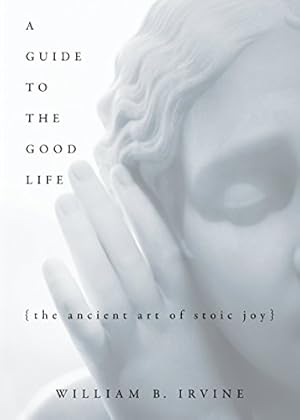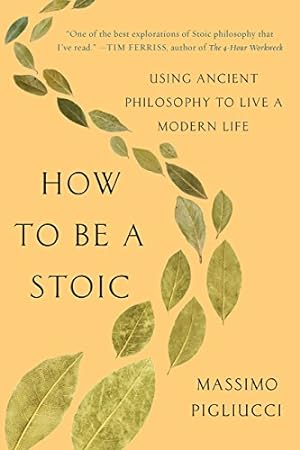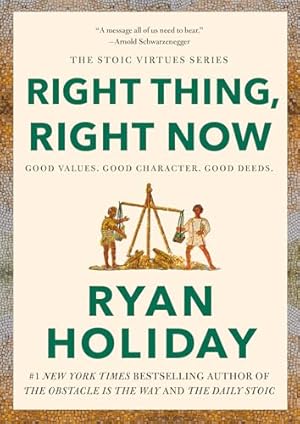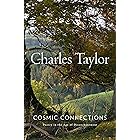Learn more
These promotions will be applied to this item:
Some promotions may be combined; others are not eligible to be combined with other offers. For details, please see the Terms & Conditions associated with these promotions.
Your Memberships & Subscriptions

Download the free Kindle app and start reading Kindle books instantly on your smartphone, tablet, or computer - no Kindle device required.
Read instantly on your browser with Kindle for Web.
Using your mobile phone camera - scan the code below and download the Kindle app.

Stoic Pragmatism (American Philosophy) Kindle Edition
John Lachs, one of American philosophy's most distinguished interpreters, turns to William James, Josiah Royce, Charles S. Peirce, John Dewey, and George Santayana to elaborate stoic pragmatism, or a way to live life within reasonable limits. Stoic pragmatism makes sense of our moral obligations in a world driven by perfectionist human ambition and unreachable standards of achievement. Lachs proposes a corrective to pragmatist amelioration and stoic acquiescence by being satisfied with what is good enough. This personal, yet modest, philosophy offers penetrating insights into the American way of life and our human character.
- LanguageEnglish
- PublisherIndiana University Press
- Publication dateMay 9, 2012
- File size4.0 MB
Shop this series
See full series- Kindle Price:$51.98By placing your order, you're purchasing a license to the content and you agree to the Kindle Store Terms of Use.
- Kindle Price:$70.34By placing your order, you're purchasing a license to the content and you agree to the Kindle Store Terms of Use.
- Kindle Price:$198.83By placing your order, you're purchasing a license to the content and you agree to the Kindle Store Terms of Use.
- Kindle Price:$510.40By placing your order, you're purchasing a license to the content and you agree to the Kindle Store Terms of Use.
Shop this series
This option includes 3 books.
This option includes 5 books.
This option includes 10 books.
This option includes 39 books.
Customers also bought or read
- How to Think Like Socrates: Ancient Philosophy as a Way of Life in the Modern World
 Kindle Edition$14.99$14.99
Kindle Edition$14.99$14.99 - How Minds Change: The Surprising Science of Belief, Opinion, and PersuasionEditors' pick
 Kindle Edition$16.99$16.99
Kindle Edition$16.99$16.99 - On Being and Becoming: An Existentialist Approach to Life (Guides to the Good Life)
 Kindle Edition$9.99$9.99
Kindle Edition$9.99$9.99 - Honouring and Admiring the Immoral: An Ethical Guide (Routledge Focus on Philosophy)
 Kindle Edition$0.00$0.00
Kindle Edition$0.00$0.00 - How to Think Like a Roman Emperor: The Stoic Philosophy of Marcus Aurelius
 Kindle Edition$11.99$11.99
Kindle Edition$11.99$11.99
Customers who bought this item also bought
Editorial Reviews
Review
"A direct attack on fundamentalisms of all sorts and on aggressive fanaticisms. . . . Lachs's recommendations for philosophy and for life are rooted in a deeply thought-out individualism that is not individualistic . . . a program for philosophy and a program for life."―Robert E. Innis, University of Massachusetts Lowell
"Lachs uses his interpretations and assessments of leading philosophical figures to craft and express his own original outlook."―Jessica Wahman, Dickinson College
"Stoic Pragmatism offers plenty of appeal and promise. It fulfills its pragmatic mission of aiming at amelioration and encouraging our hopes – hopes partly inspired by Lachs's promise of further statements and refinements of his views."―Philosophy in Review
". . . a valuable contribution to the ongoing discussion of how pragmatism should be developed today . . . ."―Transactions C S Peirce Society
". . . I am confident thatStoic Pragmatism, like Walden, will elevate and humble readers by reminding them of their half-forgotten hopes for a nobler life."―Notre Dame Philosophical Reviews
"Few scholars have comprehended the capacities and limitations of classical American philosophy better than Lachs, who looks even further back to the Stoics as a model for understanding pragmatism. ... Recommended."―Choice
Review
Lachs uses his interpretations and assessments of leading philosophical figures to craft and express his own original outlook.
-- Jessica Wahman ― Dickinson CollegeAbout the Author
John Lachs is Centennial Professor of Philosophy at Vanderbilt University.
Product details
- ASIN : B00ATLG82Y
- Publisher : Indiana University Press (May 9, 2012)
- Publication date : May 9, 2012
- Language : English
- File size : 4.0 MB
- Text-to-Speech : Enabled
- Screen Reader : Supported
- Enhanced typesetting : Enabled
- X-Ray : Not Enabled
- Word Wise : Enabled
- Print length : 282 pages
- Best Sellers Rank: #1,281,084 in Kindle Store (See Top 100 in Kindle Store)
- #67 in Pragmatism
- #190 in Pragmatist Philosophy
- #1,905 in Ethics & Morality
- Customer Reviews:
About the author

Discover more of the author’s books, see similar authors, read book recommendations and more.
Customer reviews
Customer Reviews, including Product Star Ratings help customers to learn more about the product and decide whether it is the right product for them.
To calculate the overall star rating and percentage breakdown by star, we don’t use a simple average. Instead, our system considers things like how recent a review is and if the reviewer bought the item on Amazon. It also analyzed reviews to verify trustworthiness.
Learn more how customers reviews work on AmazonTop reviews from the United States
There was a problem filtering reviews. Please reload the page.
- Reviewed in the United States on June 1, 2012"Age clarifies," begins John Lachs in his just-published Stoic Pragmatism. Clarity is a wonderful gift, but so is youthful indeterminacy. So many still-untested hypotheses, so many experiments yet to try, so much fun on the horizon.
The spirit of youth is indefatigable "can do" energy and enthusiasm. Age is more realistic, having tried and succeeded and failed at so much more. The two, age and youth, have things to tell one another. Too bad each tends to think it already knows it all. "I have yet to hear the first syllable of valuable or even earnest advice from my seniors," snarled young Henry Thoreau. Kids these days, they rejoined. We rejoin. Why don't you pick up your room?! (And then, as Ron Padgett reminds, then save the world.)
I certainly don't dispute the practical wisdom of stoic pragmatists who know, with Lachs, that "there's nothing infinite about us." But I still envy the young their intrepdity, from which I daily draw practically-infinite encouragement and inspiration. They remind me of my own misplaced sense of sky-high possibility.
Henry's whole statement on this matter, so delightfully and so youthfully over the top:
What old people say you cannot do, you try and find that you can. Old deeds for old people, and new deeds for new... Age is no better, hardly so well, qualified for an instructor as youth, for it has not profited so much as it has lost. One may almost doubt if the wisest man has learned anything of absolute value by living. Practically, the old have no very important advice to give the young, their own experience has been so partial, and their lives have been such miserable failures, for private reasons, as they must believe; and it may be that they have some faith left which belies that experience, and they are only less young than they were. I have lived some thirty years on this planet, and I have yet to hear the first syllable of valuable or even earnest advice from my seniors. They have told me nothing, and probably cannot tell me anything to the purpose. Here is life, an experiment to a great extent untried by me; but it does not avail me that they have tried it. If I have any experience which I think valuable, I am sure to reflect that this my Mentors said nothing about. -Thoreau, Walden
Yes, Thoureau's youthful impudence is WAY over the top. I began hearing valuable, earnest advice from my mentor John Lachs before I was thirty and I'm still hearing it. Some of it has finally registered. I'll pass it along to my Intro students in the Fall. If they read carefully, they'll hear much more than a cautionary warning not to repeat the hubris of Ozymandias.
True enough, from dust we arose and to dust we'll return. But within those natural boundaries there's plenty of room to roam, and so many ways to find our personal, familial, communal, and social delights, to be good (or "good enough," as Lachs likes to say) and to be happy. How to do it, and how to allow others the respectful autonomy to do it too, is a conversation for all ages.
Phil Oliver
Nashville, TN
- Reviewed in the United States on August 9, 2012Lachs is an elegant and humane writer who has clearly thought much, and deeply, about modern life. For that alone, this is a very worthwhile book. But it is clear that his interests - and his scholarship - rest almost entirely in modern philosophy. The book's discussion of the Stoics is extremely cursory, which seems odd for a volume that features `Stoic' in the title. Expect a thought-provoking experience, but very little about real Stoicism as it was taught and lived by the actual Stoics. For a more thorough exploration of Stoicism and how it might be applied in the 21st century, consider Irvine's 'A Guide to the Good Life'.










































